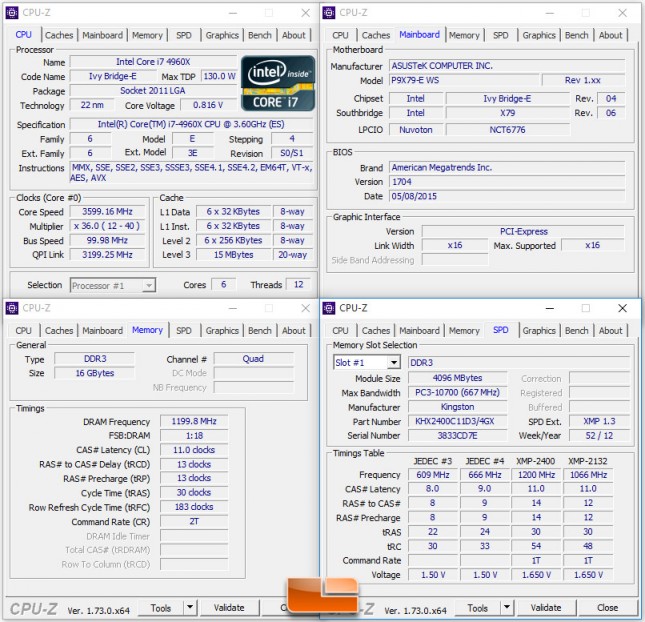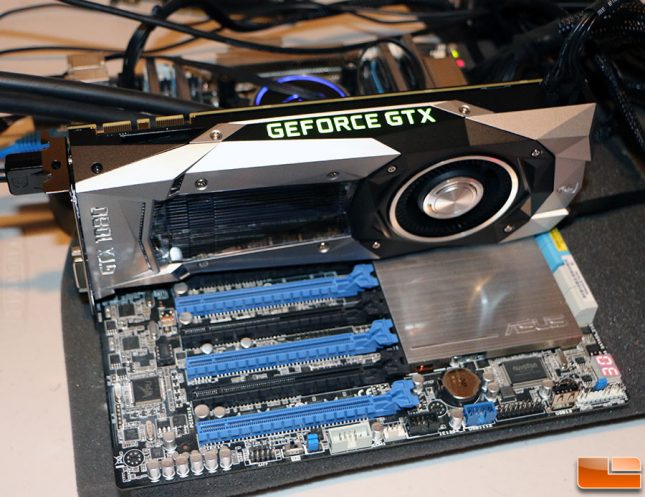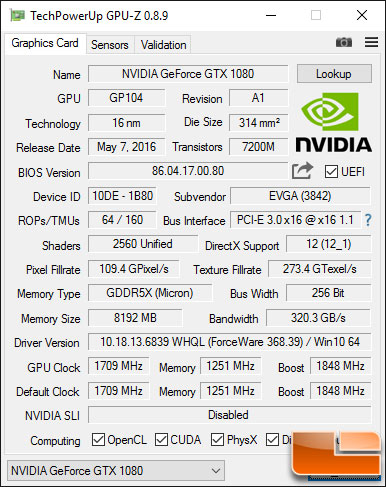EVGA GeForce GTX 1080 SC Gaming ACX 3.0 Video Card Review
Test System
Before we look at the numbers, let’s take a brief look at the test system that was used. All testing was done using a fresh install of Windows 10 Pro 64-bit and benchmarks were completed on the desktop with no other software programs running. There has been some concern of people testing a cold card versus a hot card, but we’ve always done out testing ‘hot’ since the site started back more than a decade ago.
Video Cards & Drivers used for testing:
- AMD Radeon Software Crimson Edition 16.1.1
- NVIDIA GeForce 368.39 for GTX 1080/1070 and GeForce 362.00 For All Others
Intel X79/LGA2011 Platform
The Intel X79 platform that we used to test the all of the video cards was running the ASUS P9X79-E WS motherboard with BIOS 1704 that came out on 05/08/2015. We went with the Intel Core i7-4960X Ivy Bridge-E processor to power this platform as it is PCIe 3.0 certified, so all graphics cards are tested with PCI Express Gen 3 enabled. The Kingston HyperX 10th Anniversary 16GB 2400MHz quad channel memory kit was set to XMP Profile #2. This profile defaults to 2133MHz with 1.65v and 11-13-13-30 2T memory timings. The OCZ Vertex 460 240GB SSD was run with latest firmware available. A Corsair AX860i digital power supply provides clean power to the system and is also silent as the fan hardly ever spins up. This is critical to our testing as it lowers the ambient noise level of the room and gives us more accurate sound measurements.

Here are the exact hardware components that we are using on our test system:
| The Intel X79 Test Platform | |||||
|---|---|---|---|---|---|
|
Component |
Brand/Model |
Live Pricing |
|||
| Processor | Intel Core i7-4960X | ||||
| Motherboard |
ASUS P9X79-E WS
|
||||
| Memory |
16GB Kingston 2133MHz
|
||||
| Video Card | Various | ||||
| Solid-State Drive | OCZ Vertex 460 240GB | ||||
| Cooling | Intel TS13X (Asetek) | ||||
| Power Supply | Corsair AX860i | ||||
| Operating System | Windows 10 64-bit | ||||
| Monitor | Sharp PN-K321 32″ 4K | ||||
EVGA GeForce GTX 1080 SC Video Card GPU-Z Info:
Let’s move on to the Battlefield 4 benchmark results!


